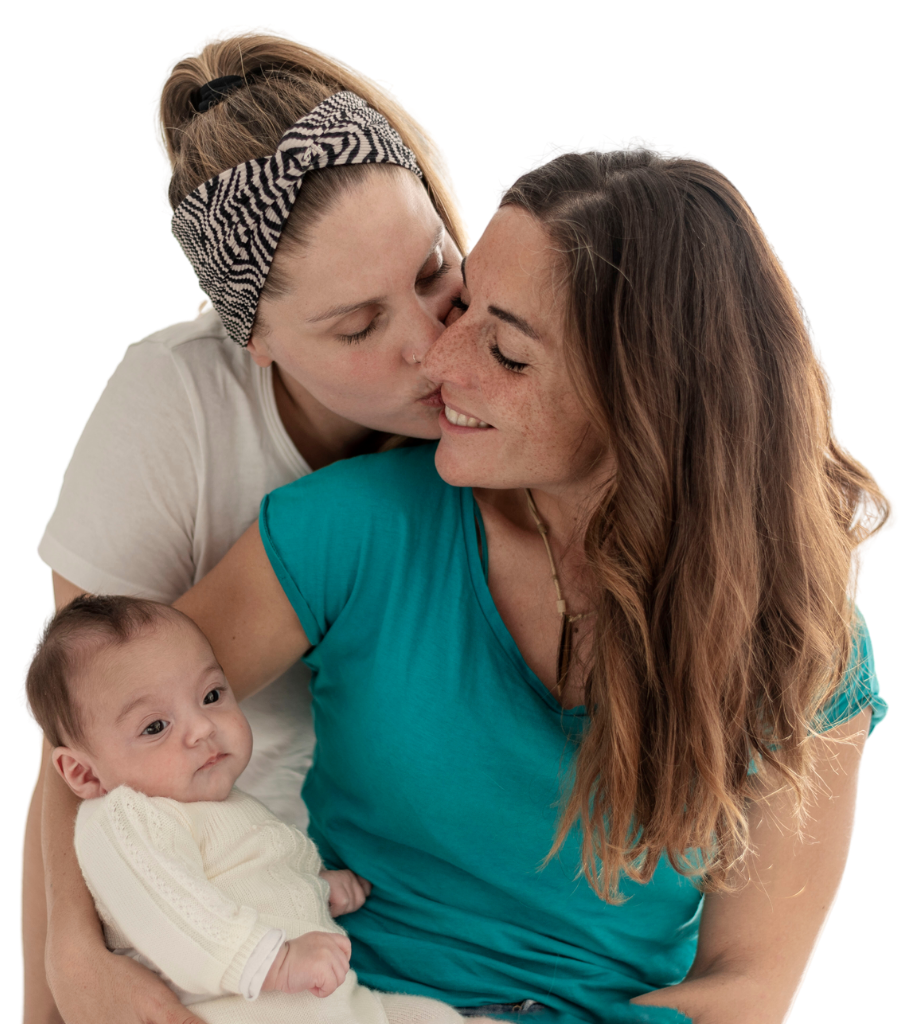For female couples who want to have a family, getting help from a fertility specialist is fairly common. In many cases, the couple obtains donor sperm from a reputable sperm bank, then one of the partners uses it to become pregnant, either through intrauterine insemination (IUI) or in vitro fertilization (IVF).
But what if both partners want to be part of the pregnancy? Reciprocal IVF could be a good option.
How It Works
IVF is defined as any fertility treatment where both an egg and sperm are removed from the body and used to create an embryo in a lab setting. In a conventional IVF cycle, one woman takes medication to stimulate egg production. Her eggs are then retrieved, fertilized and placed back in her uterus to grow and develop, in hopes of a successful pregnancy.In reciprocal IVF — also known as partner IVF, co-maternity or shared maternity — one partner goes through the process of ovulation induction and egg retrieval, and the other partner carries the pregnancy. In other words, one partner is the egg donor, while the other is the gestational carrier.
During the treatment process, the menstrual cycles of both partners are synchronized using birth control pills. While the egg donor partner undergoes ovulation stimulation, the gestational carrier partner takes estrogen and progesterone to thicken the lining of her uterus to prepare it for the embryo transfer, and increase the chances for implantation.
The couple may choose to freeze their embryos and transfer them to the gestational carrier partner at a later date, if they wish to delay starting a family for any reason, or if they want to have the embryos undergo genetic testing.
For more information, check out our blogs about how IVF works, surrogacy and gestational carriers, egg freezing and donor sperm.
Other Considerations
If both partners are healthy and have no fertility issues, it does not matter which of them assumes either role. Oftentimes, each partner has a preference of which role they want to take.If one partner is older or has a decreased ovarian reserve (meaning fewer viable eggs), the other partner should assume the role of egg donor. Or, if one partner has an underlying condition that could prevent her from carrying a pregnancy, or she simply does not want to give birth, she could assume the role of egg donor.
Another alternative would be for both partners to undergo donor sperm insemination using the same sperm donor. Their children would be half-siblings.
The cost of reciprocal IVF is comparable to a standard IVF cycle. There are some recommended prerequisites in regards to donating eggs and being a gestational carrier, such as FDA testing for communicable diseases. These tests can be waived by the couple. Legal counseling is always strongly recommended even if the couple is married, as laws vary significantly from state to state.
Because both partners have a uterus and ovaries, they have the unique opportunity to be physically involved in the process of conception and pregnancy if they desire. To find out if reciprocal IVF is an option for you, call us for a consultation at (502) 897-2144.








